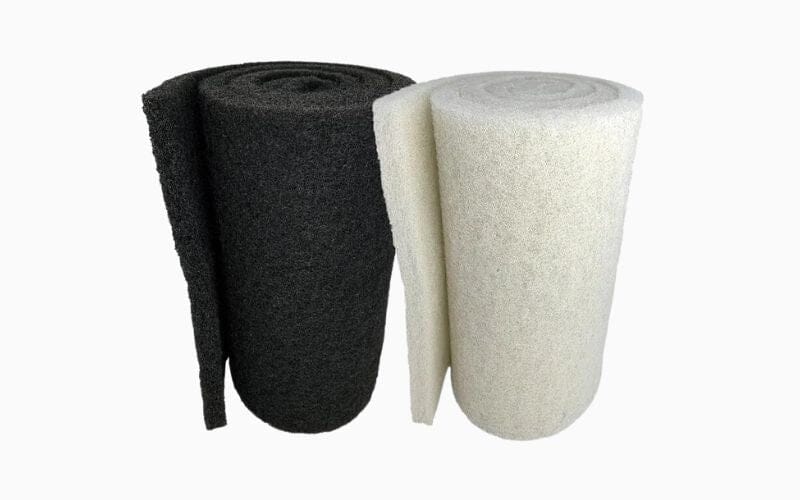Understanding pond filters and their significance in maintaining a healthy aquatic environment is crucial for any pond owner. This article aims to help you understand various types of pond filters, how to choose the right one, and their maintenance while comparing popular pond filter brands. Let's dive in!
Why Are Pond Filters Important?
Pond filters play an essential role in sustaining a healthy pond. They ensure optimal water quality, promote the well-being of aquatic life, and enhance the overall aesthetics of your pond. Filters are responsible for removing debris, reducing excess nutrients, and controlling algae growth in your pond. Without an effective filter, your pond may become a stagnant, murky water body.
Different Types of Pond Filters
Several types of pond filters are present. Some of them are as follows:
- Biological filters
- Mechanical filters
- UV filters
Mechanical Filters
Mechanical filters, also known as physical filters, utilize various filter media to physically trap and remove debris and particulate matter from the water. From foam pads to filter brushes and mats, these filters ensure that larger particles do not accumulate in the pond, leading to improved water clarity and reduced maintenance efforts.
Biological Filters
Biological filters rely on the natural processes of beneficial bacteria to break down harmful substances in the water. These filters create an environment where the bacteria can thrive and effectively convert toxic compounds into less harmful forms. By cultivating a healthy colony of beneficial bacteria, biological filters play a vital role in maintaining water quality and creating a balanced ecosystem.
UV Filters
UV filters employ ultraviolet light to control algae growth and eliminate harmful pathogens. By subjecting the water to ultraviolet radiation, these filters neutralize single-celled algae and prevent their uncontrolled proliferation.
UV filters effectively combat waterborne pathogens, enhancing the overall health and well-being of your pond's inhabitants.
How to Choose the Right Pond Filter

Choosing the right pond filter depends on factors like pond size, fish population, desired water clarity, and maintenance preferences. Here are some aspects to consider:
Pond Size and Volume
Filter capacity should align with your pond's volume. An under-capacity filter won't effectively clean the water, while an over-capacity one may unnecessarily increase maintenance and costs.
Consider Your Aquatic Life
A higher number of fish will produce more waste, requiring a more powerful filtration system. If your pond hosts a lot of fish, a biological filter might be a good choice.
Desired Clarity Level
If crystal-clear water is your primary goal, consider incorporating a UV filter into your system to control algae growth.
Fish Load and Stocking Density
The number and type of fish in your pond impact the filtration requirements. Higher fish loads produce more waste, necessitating robust filtration systems to maintain water quality. Consider your fish's species, size, and feeding habits when choosing a filter.
Sunlight Exposure
Managing Algae Growth Sunlight exposure can fuel excessive algae growth, leading to water quality issues. Assess the amount of sunlight your pond receives and select filters that include UV sterilization or additional features to combat algae proliferation effectively.
Budget Considerations
Budgetary constraints play a role in filter selection. Explore different filter options and consider their initial cost, long-term maintenance requirements, and overall value for your specific pond needs.
Pond Filter Maintenance Guide
Proper maintenance of your pond filter ensures optimal performance and longevity. Here's a basic guide on maintaining your pond filter.
Routine Cleaning
Clean mechanical and biological filters regularly to prevent debris buildup and ensure proper water flow. UV filters require less frequent cleaning but ensure the UV bulb is functioning.
Seasonal Maintenance
Consider partially or completely shutting down your filtration system during winter, depending on your location and pond characteristics. In spring, do a thorough cleaning and inspection before restarting the system.
Replacing Components
Replace worn-out parts promptly. In UV filters, replace the UV bulb annually to maintain its efficiency.
Comparing Pond Filter Brands
Regarding pond filters, several reputable brands stand out for their performance, durability, and customer service.
OASE
OASE is known for its premium quality pond filters. Their BioSmart series is popular for efficient mechanical and biological filtration.
Laguna
Laguna offers a range of reliable pond filters. Their Pressure Flo series has an excellent reputation for easy maintenance and high performance.
TetraPond
TetraPond offers an affordable range of pond filters. Their Bio-Active Pressure Filter is praised for its easy setup and effective filtration.
Importance of Regular Pond Filter Updates
Just like any other equipment, pond filters also have a lifespan. The efficiency of a filter may diminish over time, and it might not function as effectively as it once did. Regular inspection and updates, therefore, become crucial. Upgrading your pond filter system periodically or as required ensures optimal performance and incorporates any advancements in technology that can significantly improve your pond’s health.
Moreover, each pond has its own evolving needs. Over time, you may add more fish, aquatic plants or expand the pond size. In such situations, updating your pond filter becomes necessary to keep up with the changes and support the new requirements. A filter that once seemed perfect may no longer be the best fit. Thus, be open to changes and update your pond filter system when necessary.
The Ecological Impact of Pond Filters
While pond filters are crucial for maintaining a healthy pond environment, they also have a broader ecological impact. Keeping the water clean and clear promotes a thriving ecosystem that can support a diverse range of aquatic species. This biodiversity can ripple effect, attracting terrestrial wildlife that depends on water bodies for sustenance, making your pond a local ecological hub.
Furthermore, by controlling the nutrient levels in the pond, filters can prevent the overgrowth of algae and certain plants that can choke out other life forms. They maintain a balance, ensuring one species doesn’t dominate over others. Hence, besides enhancing your pond's aesthetics and health, pond filters play a significant role in supporting local biodiversity and contributing to ecological balance.
Conclusion
Pond filters play an integral part in maintaining a healthy and beautiful pond. Understanding the different types of filters and their maintenance and comparing brands will help you make an informed decision to support your pond's unique needs.
FAQs
How often should I clean my pond filter?
The cleaning frequency depends on the filter type and your pond conditions. Generally, mechanical filters should be cleaned weekly or bi-weekly, while biological filters can be cleaned less frequently, such as once a month.
Can I use more than one type of pond filter?
Absolutely. Many pond owners use a combination of mechanical, biological, and UV filters to ensure comprehensive filtration.
Do small ponds need filters?
Yes. Regardless of the size, every pond can benefit from a filter to maintain water quality and clarity.
How do I know if my pond filter is not working correctly?
Signs of a poorly functioning filter may include cloudy or green water, bad odors, excessive debris, or poor fish health.
Are more expensive pond filters better?
Not necessarily. The best filter depends on your pond's unique needs. While some premium filters offer more features and durability, many affordable filters perform well. Always compare parts, reviews, and warranty information before making a decision.





